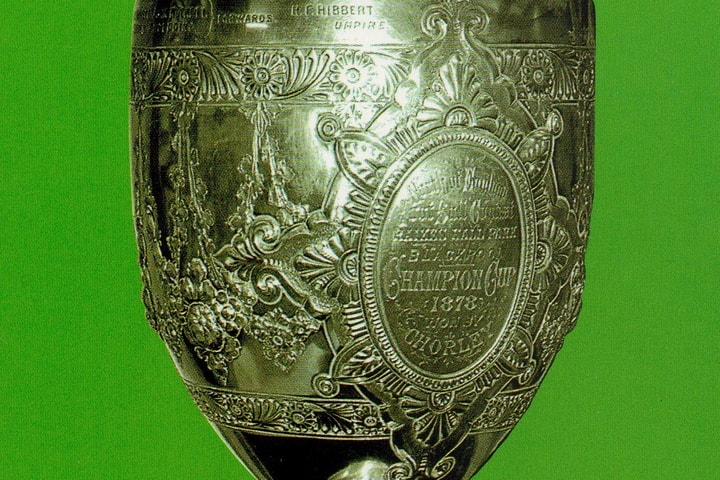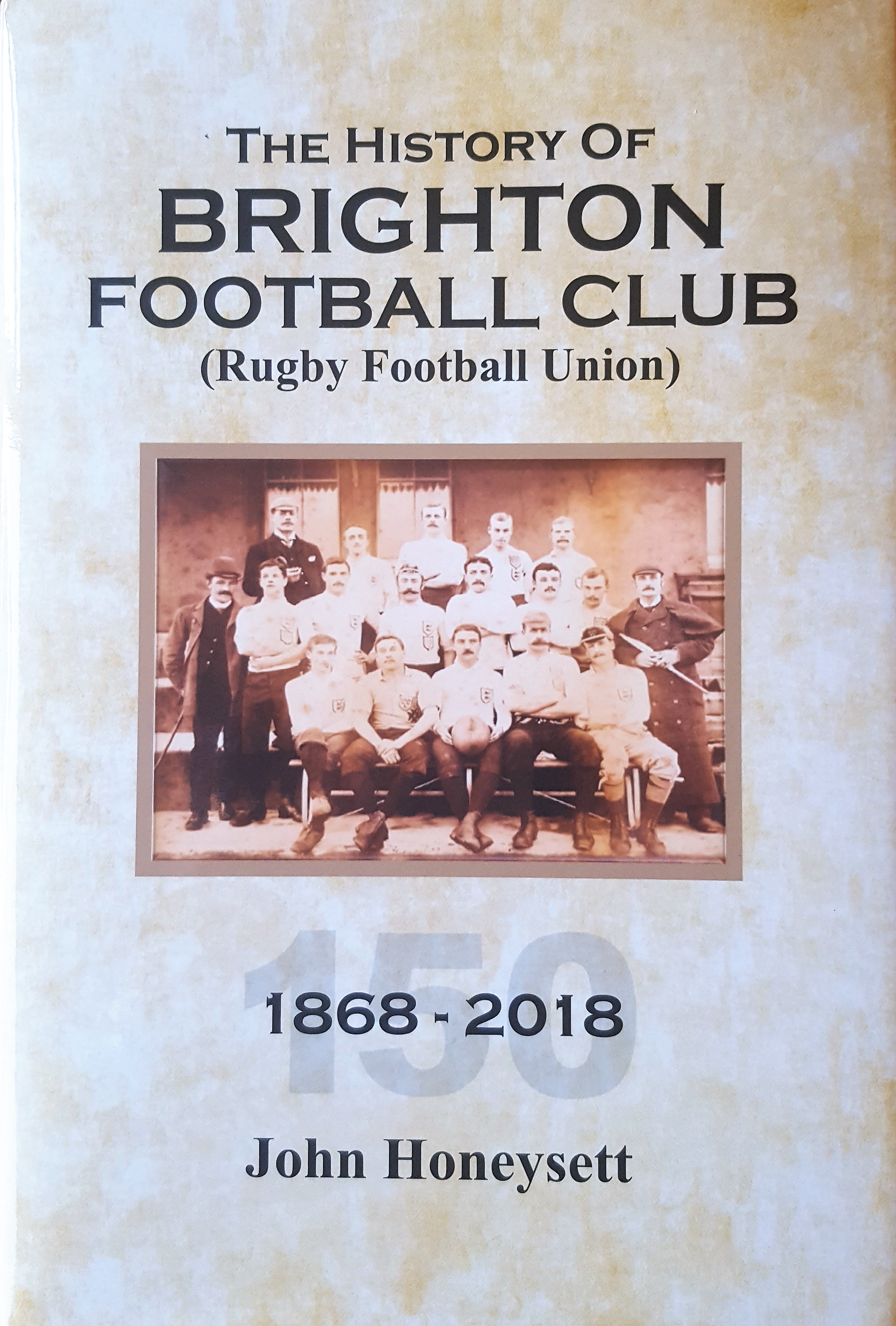
26 January 2026

John Honeysett's recent book 'The History of Brighton Football Club (Rugby Union)' provides a shake-up for established rugby historical orthodoxies. Amongst a number of claims is that Kent and Sussex contested the first county match in 1866, four years before Lancashire met Yorkshire for the first time in what is believed to have been the first representative match of any kind. Here John explains... During the research for my book "The History of Brighton Football Club (RFU)" I came across a fascinating record of a series of games played in Brighton in late 1865 and early 1866. The game which I conclude is poignant to the Rugby World was the "County" game between Sussex and Kent. These have been transcribed direct from contemporary Brighton newspapers. Below is an extract from my book.
"Arrangements are being made for a County match between Kent and Sussex. Blackheath and Brighton authorities are negotiating, and it will in all probability take place Saturday Feb 3rd. The County will comprise several first class players, including such talent as Mr W. Hudson, the well known "Sussex County Cricket" player, Mr D'Alquin, also a celebrated Foot Ball player, with Mr Hodson at the Brighton College, Mr J.A.F. Leigh, Mr Weekes, Mr C.G. Barnes (Capt of the Brighton College) Mr Austin, Mr Blaker, and several others, among whom no doubt, may be included two or three of the masters of Brighton College. The contest already excites considerable interest and no pain will be spared to collect strength of the county on this occasion"
Records indicate that all games played at the Queens Park Cricket Grounds were organised, managed and sponsored by a Mr Fred Lillywhite. The son of the famous Cricketer also Fred Lillywhite, who played international cricket for England. In 1863 Fred opened a Sports shop in Ship Street as a logical move to his role of supporting local sporting events. On the 28th January 1866, Lillywhite confirmed arrangements for the first County Foot Ball match, to be played between Kent and Sussex.
"Foot Ball --- We are now enabled to announce that a County Foot Ball Match has been arranged to take place on Saturday next, Feb 3rd, between the counties of Kent and Sussex, the former fifteen coming from Blackheath, and the latter may be seen at Mr Fred Lillywhite's, 41 Ship Street. He has, at present, down the following list:--- The Hon. F.G. Pelham, Rev. E. B. Elliott, A. Bateman, Esq., W.C. Auston, Esq., H.C. Blaker, Esq., W. C. Blaker, Esq., F.N. Foster, Esq., J.F. Leigh, Esq., E. B. Fawcett, Esq., W. Hodson, Esq., A. M. Mills, Esq., W.W. Blunt, Esq., and C.R. Gurney, Esq."
Feb 3rd 1866 FOOTBALL MATCH THE COUNTIES OF KENT AND SUSSEX
For the first time in our knowledge has a Foot Ball match taken place between Counties, and this may be attributed to the exertions of Mr Fred Lillywhite, followed up, we are informed, by the assistance of Mr Leigh of the Brighton Football Club, and the gentleman comprising it. The weather was most boisterous; so much so, that all thoughts of play were at one time extinguished. A telegraphic despatch, however, arrived at Lilly's at 3 o'clock stating that the Blackheath gentlemen were on the road, and they hoped to meet their opponents on the field. This (all honour to Sussex) they did, and the necessary arrangements having been completed, Kent won the toss, and play commenced at 4 o'clock. Kent was captained by Mr Paterson and Sussex by Mr H.C. Blaker. The following comprising sides.
| SUSSEX T.S. Baker, Esq. H.C. Blaker, Esq, (Capt) W.C. Blaker, Esq. J.C. Chandor, Esq. H. D'Alquin, Esq. F.N. Foster, Esq. C.R. Gurney, Esq. J.H.R. Kirby, Esq J.F.A. Leigh, Esq A.M. Mills, Esq. C. Templeton, Esq. T .Ward, Esq. A.H. Weekes, Esq. H.B. Woods, Esq | KENT F.M. Campbell, Esq. L.A. Campbell, Esq. E.L. Dunn, Esq. C. Fryer, Esq. D. Lyall, Esq. J.F. Paterson, Esq. (Capt) W.C. Scott, Esq. C.J. Scott, Esq. W. Smith, Esq J.V. Walmsley, Esq. --- Muggeridge, Esq. --- Millward, Esq. |
Kent won the toss, and kicked with the wind, up the hill. Forty minutes of play took place with varied success,----perhaps Kent having a trifle the best of it, they being more of a weighty material. At 4.40, at the call of the time keeper, a change of sides took place, and Kent soon ran a rouge. It was cleverly done, and at 25 yards, kick a goal was obtained. The play continued until 5:15 when time was called, Kent proving victorious by one goal to Sussex's none. The ground, of course, was in a very slippery state, but some science was displayed by both sides. Mr H.C. Blaker's running was particularly noticeable, as was Mr Layall's for Kent. The goal was admirably kicked by Mr Paterson, there being no dispute as to it going directly over the prescribed limits. Three hearty cheers were given to the winners by the Sussex gentlemen, and Kent, on leaving per bus, for the Old Ship Hotel, returned the compliment, with their Kentish fire , which honour they also did to Lillywhite for his general arrangements. The return match will take place at Blackheath, on March 3rd.
The above Kent side was mainly made up of "Blackheath Football Club" players, I have been in communication with Mandy Allen & Peter Brown from Blackheath F.C. who confirmed the majority of names were Blackheath players, and a name that stands out is F. M. Campbell, a very interesting gentleman, who played a very important role in establishing the "Association Football" and the "Rugby Football Union" And I quote:-
"In 1863 Blackheath was a founder member of The Football Association which was formed at The Freemason's Tavern, Great Queen Street, on Lincoln Inn Fields, London 26 October 1863 with the intention to frame a code of laws that would embrace the best and most acceptable points of all the various methods of play under the one heading of "football". Mr Francis Maule Campbell of Blackheath, was elected treasurer. At the fifth meeting Campbell argued that hacking was an essential element of 'football' and that to eliminate hacking would "do away with all the courage and pluck from the game, and I will be bound over to bring over a lot of Frenchmen who would beat you with a week's practice." At the sixth meeting on 8 December Campbell withdrew Blackheath, explaining that the rules that the FA intended to adopt would destroy the game and all interest in it. Other clubs followed this lead and did not join the Football Association. In this way the great divide between soccer and rugby took place".
About the Author - John Honeysett joined
Brighton Rugby Football Club (RFU) in 1976. He  was always fascinated by the club's name without
knowing the intricacies and derivation of the game 'Football'.
If, like John, the history of Rugby Football intrigues you,
especially the elusive history of Brighton Football Club (RFU) then
you should find this book a fascinating and enlightening read.
Available here.
was always fascinated by the club's name without
knowing the intricacies and derivation of the game 'Football'.
If, like John, the history of Rugby Football intrigues you,
especially the elusive history of Brighton Football Club (RFU) then
you should find this book a fascinating and enlightening read.
Available here.